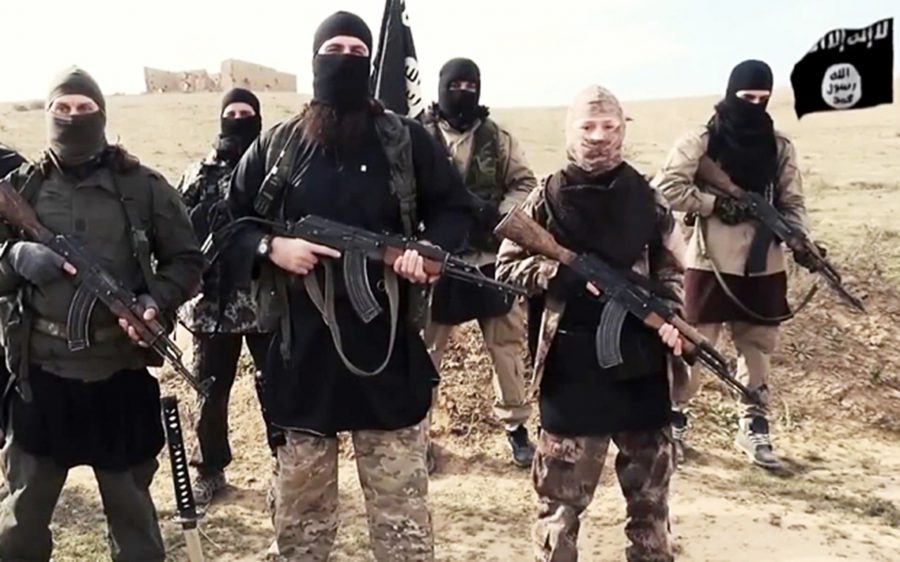Understanding ISIS and its Future
The Islamic State of Iraq and Syria, commonly referred to as ISIS, is a global terrorist organization that the western hemisphere has been dealing with since 2011. Many argue that, unlike previous foes such as Al Qaeda, ISIS is a new and challenging foe. While it is unclear now what the future of ISIS is, it is a topic that will be talked about for some time, and will be a challenge for the next White House administration and our military in the years to come.
The Central Challenge with ISIS:
The reason that ISIS is so different from previous terrorist organizations we have faced is that ISIS manifests itself in a much wider way. It is not simply a discussion of military tactics and who to eliminate. For the first time, the western hemisphere is dealing with religious and political ideologies on a broad scale.
Like other terrorist organizations, ISIS makes use of violence and attacks on both military units and civilians. Terrorism is is nothing new, as the use of violence for political, ideological, and religious reasons is something human history is steeped in. The biggest change with ISIS is that the attacks are so widespread across the globe and the Western Hemisphere. Europe, in particular France and Belgium, have been subject to multiple ISIS organized attacks such as the November 2015 attacks in Paris. The United States has not been unscathed, with attacks such as the San Bernardino mass shooting, recent attacks in New York and New Jersey, and the Orlando attack last summer.
The trouble with ISIS is that, in the United States at least, we’re hesitant to jump to conclusions; fairly so, it must be stated. Whenever an attack occurs, we do not want to rush to judgements. In our efforts to avoid rushing to judgements, things like a potential chemical weapons attack by ISIS on American military overseas is even politicised. While there was always debate surrounding how the United States should respond to terrorism in the past, our nation is now very careful how we respond. We are trying to avoid the same mistakes we made with Iraq or Afghanistan (both militarily and politically); so far it has paid off. Many fear is that because ISIS is so wide and complex, if we do not tackle and defeat ISIS right now, it could drag us into another lengthy conflict. Naturally this debate on how to defeat or deal with ISIS and terrorism in general has been a main topic of this year’s Presidential Election.
ISIS and the Presidential Election
Between the Republican and Democratic platforms ISIS is named 17 times. It is a big piece for each party this election season, with both parties promising to destroy ISIS. Both parties also accuse either side of not having a clear plan, or not being committed to completely destroying ISIS, even though both parties candidates swear up and down that they will do this.
Donald Trump argued in the first presidential debate that Hillary Clinton is too transparent on her plan to destroy ISIS, saying, “She tells you how to fight ISIS on her website. I don’t think General Douglas MacArthur would like that too much.” Hillary Clinton responded that “at least [she] has a plan.” So far, Donald Trump maintains that he does not want to give away any ideas or strategies on how he’ll deal with ISIS if elected – he argues it tells the enemy what we’re about to do. What then, exactly, does Donald Trump mean that Hillary is making her plans too transparent?
Hillary Clinton’s website is quite specific. Clinton argues that defeating ISIS requires military action, action and cooperation with our Allies, and measures here at home. This is similar to Donald Trump’s views. Trump, however, believes that we are engaged in an ideological war and must cut ties with allies who do not match our ideologies; he calls for immigration reform as a way to screen out domestic terrorism. Trump’s main arguments stem from mistakes and actions he finds to be mishandled under the Obama administration. Because of Clinton’s role as Secretary of State, Trump holds Clinton accountable for ISIS’ rise over the past five years.
The Takeaway
When you hear Donald Trump call Hillary Clinton and Barack Obama the “founders of ISIS” you have every right to guffaw – in fact you should. But understand this: The problems that we’re facing with ISIS are both very old and very new at the same time. ISIS is attempting to install a caliphate to rule over the Middle East, a central ruler, which has not occurred since the Dark Ages a thousand years ago. This turmoil within Islam is not new, and the non-Muslim world has been dealing with this for over a thousand years. What is new is ISIS itself, which did grow from instability throughout the Middle East following the 2011 Arab Spring, where countries such as Egypt, Syria, Libya, and Iraq experienced massive political upheavals and violent, ongoing revolutions.
I encourage you, the reader, to look into how modern borders in the Middle East were established, especially following World War I. With geo-political borders changing so much in the past hundred years, learn about how the political regimes in places like Egypt, Syria, Libya, and Iraq came into power. Hillary Clinton had little or nothing to do with these decisions, obviously. Understand that the United States and the Western Hemisphere is still shaking out issues from World War I while simultaneously meddling in the Middle East. ISIS is a very big backlash towards our meddling.
Are we to blame for the rise of ISIS? Of course not. But we, and the White House administration over the past few years, has had a hand in how events have unfolded since 2011. We now are dealing with a giant mess and are left scratching our heads. Who is to blame? How can we fix it? Can we even fix it?
Our generation has now fought an entire Global War on Terror since 2001 – with no end in sight. Soon the class of 2022 will start college. Soon there will be an entire generation of children who have no memories of a United States that was NOT engaged in War or major military actions in the Middle East. The solution to dealing with groups like ISIS extends well beyond military options, at this point. We’re nowhere closer to defeating groups like ISIS, and it remains to be seen if the events of this election have a positive or negative effect in this ongoing war in the Middle East.







